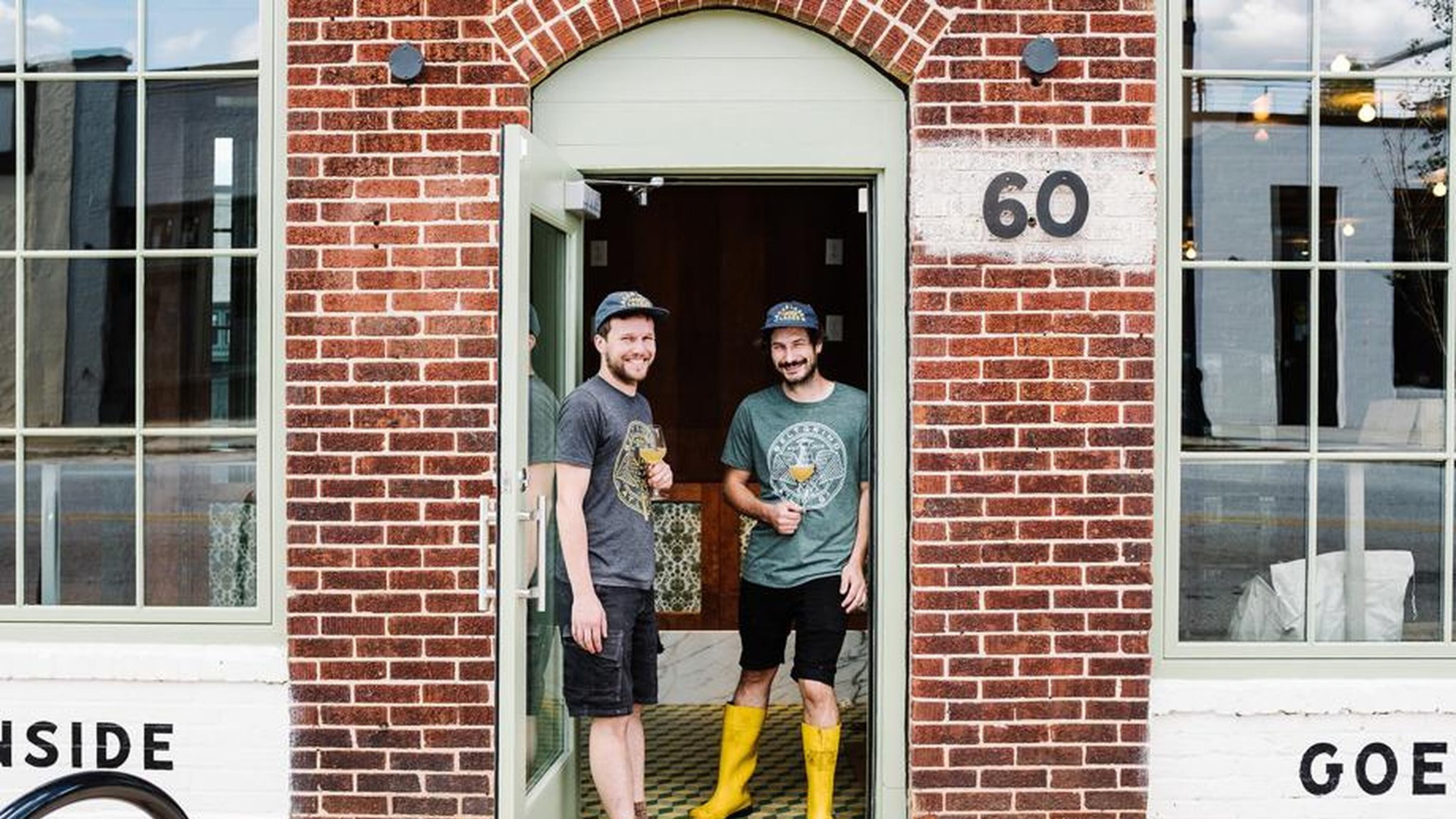Beer Town: With dropping sales, how will Atlanta breweries survive?

Recently, the Brewers Association launched a series of surveys designed to gauge the impact the current COVID-19 pandemic and social distancing measures are having on small breweries.
Bart Watson, the chief economist for the not-for-profit trade association, had some alarming news to share in a release last week, under the headline: “Brewery Sales Dropping Sharply, Many Set to Close.”
“The results show a sharp drop in craft category sales, massive furloughs or layoffs, and the high likelihood of large numbers of brewery closings without a swift end to social distance measures — which looks increasingly unlikely — or rapid government support for small brewers and hospitality more broadly,” Watson wrote.
Digging into the numbers, the Brewers Association currently counts some 8,150 active breweries in the country. Watson reckons that if 2.5% of those breweries close, that would mean about 200 closures, at 12.7% about 1,035 closures, and 46.4% about 3,785.
Those are staggering calculations to contemplate. And, of course, Georgia is no different than other states when it comes to sales. The drop in draft on-premise and taproom sales is close to 100%, while off-premise package sales are up at least 10% or more.
What is different about Georgia, though, is that the state has only allowed taproom beer and food sales at breweries since 2017. And in response to that, many new breweries opened with smaller, more brewpub-like models, emphasizing on-premise sales rather than package sales.
It was a major shift in the beer business here. But as you can imagine with things changing so quickly, it’s looking like bigger breweries with more production and packaging capacity and wider distribution networks have a better chance of surviving the pandemic.
As Watson put it, “For many small brewers, the current situation is not sustainable … many brewers indicate that their business has a matter of weeks, and a majority say that they can only last a few months based on current trends.”
I asked a couple of people in the Atlanta brewery business to weigh in on Watson’s forecast.
"Frankly those numbers do not surprise me," said Jonathan Baker, the co-founder and CMO of Monday Night Brewing, which owns and operates a production brewery and two taprooms in Atlanta, and has plans to open a third location in Birmingham, Alabama. "I'm actually glad that there's some data to support what I think is going to happen. And I think we're going to see that locally, as well.
“We are running multiple scenarios, but the timeline is really the unknown. And when things are safe to open back up, I don’t expect that we’re going to get to the same levels we were at immediately. There might still be some social distancing measures in place. On-premise business is going to take a long time to recover. So what is it going to look like if it’s three more months? We’re basically trying to plan to survive those scenarios.”
It seems everyone is wondering what will be the new normal, and I asked Baker what he thought.
“I think it’s going to be very different,” he said. “I don’t know how, exactly. From everything I’m reading, it sounds like there might be a second wave at some point. And I have a feeling if that hits, you’ll see states and municipalities react a lot quicker and a lot more decisively.
"We're in a better spot because we do have an off-premise business, and we do have grocery placements. But these breweries that are new, like Fire Maker, that are draft only for now, and even had to postpone their opening, that's just a really tough spot. And I think this crisis is definitely showing some weakness with the own premise model."
In June 2019, Halfway Crooks Beer opened in Atlanta's historic Summerhill neighborhood, in the Carter development on Georgia Avenue.
Co-founders Shawn Bainbridge and Joran Van Ginderachter took the name from a Mobb Deep lyric. And the duo’s small own premise brewery promised to shake things up a bit with a concept that aimed to prove there were (quoting Mobb Deep, again) “numerous ways you can choose to earn funds.”
“We are lucky that we got a canning line, and the neighborhood has been really great in supporting us enough that we can get by,” Bainbridge said. “We had to lay off most of our staff. That’s mostly for safety. We need to keep our social circles really small and do our part not to spread this thing.
“So it’s just me and Joran and two other people. We’re doing food to go, with wings, cheeseburgers and fries, and we’re doing canned beer to go and growlers. We basically just turned everything into a canning operation. Right now, we have three lagers available in cans, which is pretty awesome.”
As to the future, Bainbridge said he and Van Ginderachter are planning for the worst and hoping for the best.
“We’re able to be sustainable based on our current income, and the support of our neighborhood,” Bainbridge said. “So as long as it keeps going the way it is, I think we’re going to be OK. But who knows what’s going to happen? We just know that right now it’s working, and we’re doing the best that we can, as safe as we can.”
RELATED:
Read more stories like this by liking Atlanta Restaurant Scene on Facebook, following @ATLDiningNews on Twitterand @ajcdining on Instagram.

